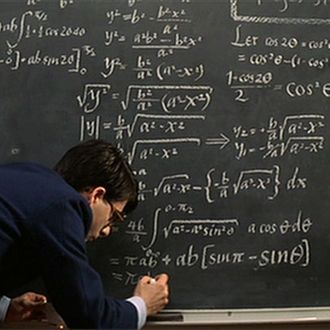
People, as a general rule, aren’t good at gauging their own abilities and tend to overrate them — it’s a finding that comes up again and again in psychological research, to the point where there’s a name for overconfidence among untalented people: the Dunning-Kruger effect. New research extends this subject to an area of perpetual anxiety for a lot of people — math — and adds an interesting silver lining.
For the paper, published recently in the Journal of Personality and Social Psychology, Ellen Peters of Ohio State and Par Bjalkebring of the University of Gothenburg studied a group of college students, testing them on both their math skills (objective numeracy) and perception of their math skills (subjective numeracy).
People weren’t very accurate at self-assessing their math skills: A third of the people who said they thought they were good at math scored in the bottom half of an objective math quiz. Slightly more surprising, about a fifth of the people who said they thought they were bad at math scored in the top half of the test, lending a sliver of hope to the math-phobic everywhere.
The researchers also uncovered a benefit to being confident in your math abilities even if they don’t actually stack up: People with high subjective but low objective literacy were more likely to stick with difficult numeric tasks, while some of the study participants who thought they were bad at math simply gave up on some of certain problems the researchers presented them, failing to provide an answer at all.
“This has important implications for everyday life,” said Peters in the study’s press release. “People who are low in subjective numeracy may not do their taxes on time or they may not make thoughtful choices on their health insurance because they just give up when faced with a lot of numbers.” So this may be a case of effort, not ability, making a noticeable difference — at least when it comes to completing certain very un-fun, but important, tasks.




